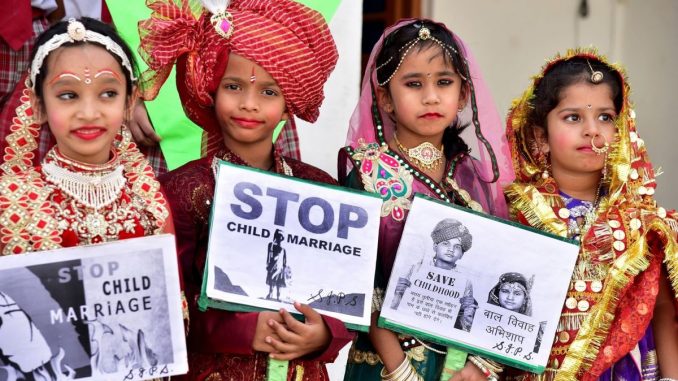
By Sonakshi Awasthi
New Delhi : It might seem strange for most people in India, but till about a week ago it was legal for underage girls to get married in the state of New York. Governor Andrew Cuomo has finally raised the marriageable age from 14 to 17 years, with the new law making approval of parents and the court mandatory for teenagers to get married before the age of 18. However, India passed the Prohibition of Child Marriage Act increasing the marriageable age from 14 to 18 years for girls and 18 to 21 years for boys over a decade back in 2006. And this is not the only instance where India has been ahead of the US in legislation.
Right to education: In 2002, India inserted Article 21A explicitly stating the Right to Education with its 86th amendment of the Constitution. Under the provision, free and compulsory education has been made a mandate for children between the age of six and 14. Two more provisions, Article 45 and 51A of the Constitution, have been dedicated to the educational right where children below the age of six are to receive free education and parents/guardians of children between six and 14 years have to provide opportunities for education. In contrast, the US Federal Constitution has no provision explicitly dedicated to the right to education and therefore state governments have control over the right under the 14th Amendment. Under the state laws, when a public school is established, no child should be devoid of schooling.
Transgender rights: Eliminating discrimination against transgenders, the Supreme Court of India passed a judgment in 2014 categorising transgender as a “third gender”, reserving a quota for the transgender in employment and educational institutions as well as when it comes to providing health benefits. Further, the Transgender Persons (Protection of Bills) Bill, 2016 has been introduced in the Lok Sabha and is soon to become a law.
In contrast, the present US government has revoked the transgender’s right to use public bathrooms. The North Carolina Bathroom Bill allows transgenders to use bathrooms in state buildings on the basis of the gender mentioned on their birth certificate, and not their present gender identity. In India the apex court ruled in favour of gender-neutral washrooms for transgenders and states like Kerala have already implemented the same.
Women directors in companies: Most Indian companies have at least one woman director as mandated under Section 149(1) of the Companies Act, 2013. In contrast the the ratio is a dismal 500:1 in the US where no such clause exists. At least 500 companies in India have one director who is a woman. According to the Prime Database Group, gap analysis of men and women directors in companies 2016, showed that India ranked third with 81 per cent companies reporting women directors. US companies could show only 61.6 per cent.
Pay gap rule: To bring transparency and increase the performance and goals of employees, the Companies Act 2013 introduced Section 197(14) directing directors of the companies to disclose their pay to the median employees. Many Indian company directors including Mukesh Ambani of the Reliance Industry Ltd., YC Deveshwar Chairman of the ITC Ltd., Azim Premji of Wipro and Managing Director have already disclosed their salary. Although the US Securities and Exchange Commission (SEC) adopted the pay gap rule in 2016, it was scheduled for fiscal 2017. At present the rule is being opposed by the institutional investors and has been delayed.
Source: The Indian Express

Leave a Reply